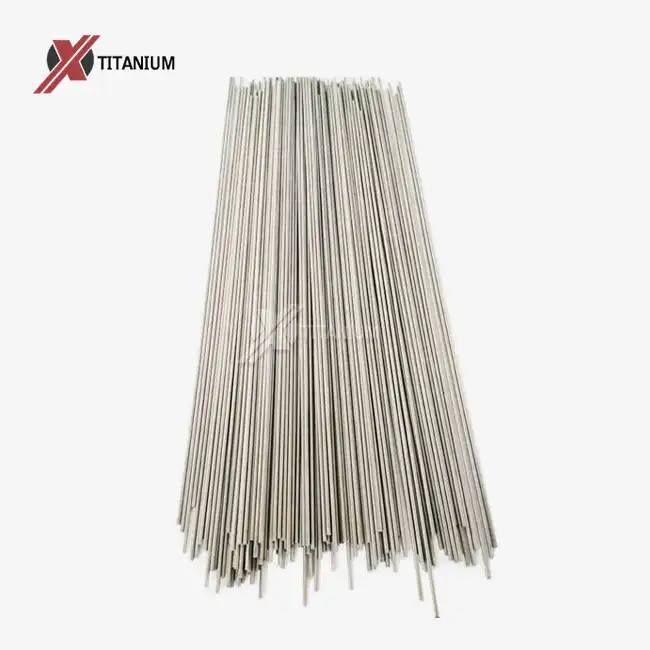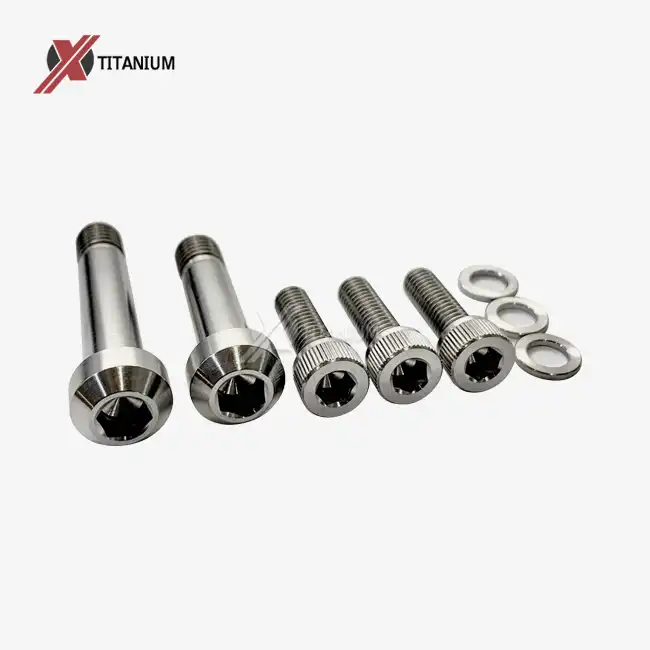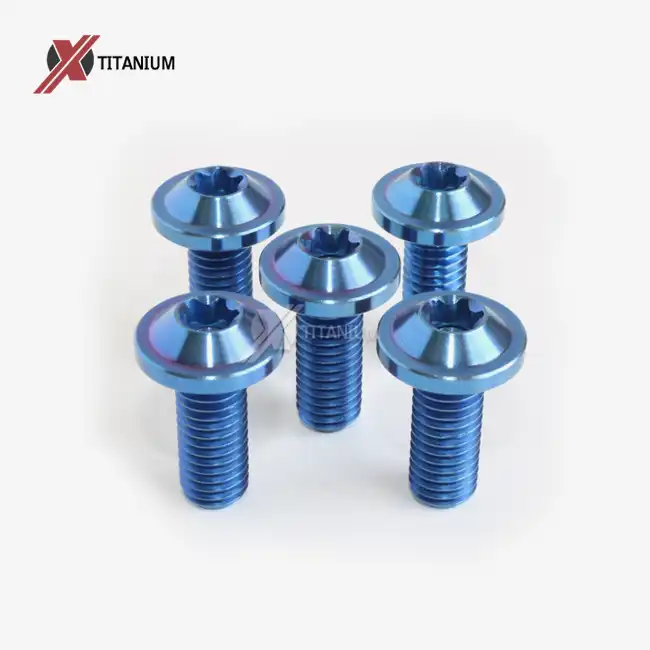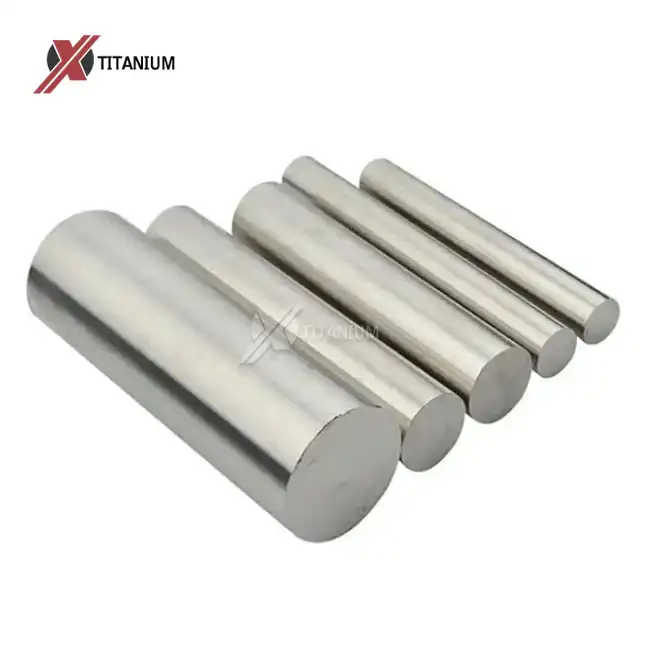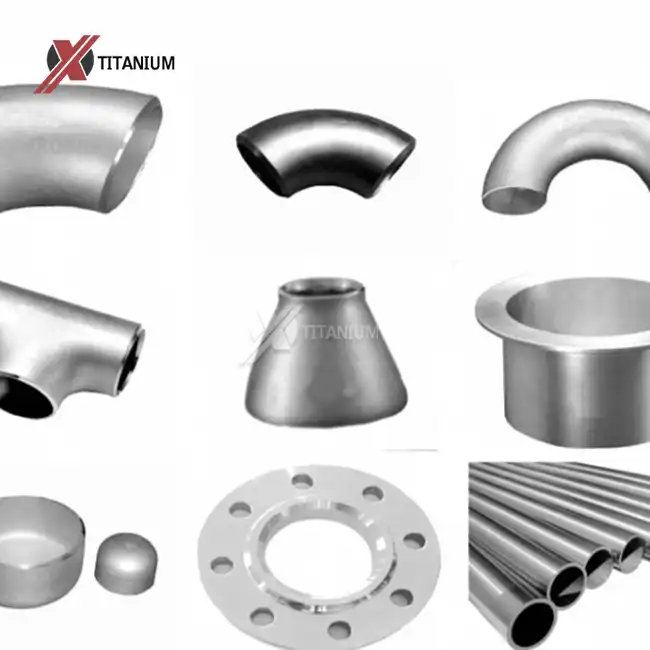Understanding Straight Titanium Wire
Straight titanium wire is a marvel of modern metallurgy, offering a unique combination of strength, lightness, and corrosion resistance. This form of titanium wire is characterized by its linear shape, making it ideal for applications that require precise lengths and minimal manipulation.
Properties of Straight Titanium Wire
Straight titanium wire boasts several remarkable properties that make it a preferred choice in various industries:
- High tensile strength: Capable of withstanding significant stress without breaking
- Low density: Lighter than steel, offering weight savings in aerospace and automotive applications
- Excellent corrosion resistance: Ideal for use in harsh environments, including marine and chemical processing
- Biocompatibility: Safe for use in medical implants and devices
- Temperature resistance: Maintains integrity in extreme heat conditions
Manufacturing Process
The production of straight titanium wire involves a meticulous process:
- Raw material selection: High-purity titanium ingots are chosen
- Hot rolling: The ingot is heated and rolled into a rod
- Cold drawing: The rod is drawn through progressively smaller dies to achieve the desired diameter
- Annealing: Heat treatment to relieve internal stresses and optimize properties
- Surface finishing: Techniques like pickling or polishing are applied to achieve the required surface quality
Applications of Straight Titanium Wire
Straight titanium wire finds applications in diverse fields:
- Aerospace: Used in aircraft components and spacecraft structures
- Medical: Employed in surgical instruments, implants, and prosthetics
- Chemical processing: Utilized in corrosion-resistant equipment
- Energy sector: Applied in offshore oil rigs and renewable energy systems
- Sports equipment: Incorporated in high-performance gear
Exploring Coil Titanium Wire
Coil titanium wire, as the name suggests, is titanium wire wound into a spiral form. This configuration offers unique advantages and is preferred in certain applications where flexibility and compact storage are paramount. Compared to straight titanium wire, coil titanium wire provides easier handling and transportation, making it ideal for processes that require continuous feeding or precise length adjustments.
Characteristics of Coil Titanium Wire
Coil titanium wire shares many properties with its straight counterpart but offers additional benefits:
- Flexibility: Easier to manipulate and shape for specific applications
- Space-efficient storage: Ideal for applications where storage space is limited
- Continuous feed: Suitable for automated manufacturing processes
- Stress distribution: The coiled form can help distribute stress more evenly in certain applications
Production Techniques
The manufacturing process for coil titanium wire involves additional steps:
- Wire drawing: Similar to straight wire production
- Coiling: The wire is wound around a mandrel to create the coil shape
- Heat setting: The coil is heat-treated to maintain its shape
- Quality control: Rigorous testing to ensure consistent coil properties
Uses of Coil Titanium Wire
Coil titanium wire is particularly valuable in these areas:
- Springs and elastic components: Used in high-performance mechanical systems
- Welding applications: Serves as filler material in titanium welding processes
- Jewelry making: Prized for its hypoallergenic properties and unique appearance
- Orthodontics: Used in braces and other dental appliances
- Fishing equipment: Incorporated in high-end fishing lines and lures
Factors to Consider When Choosing?
When deciding between straight titanium wire and coil titanium wire, several factors come into play:
Application Requirements
Consider the specific needs of your project:
- Precision: Straight wire may be preferable for applications requiring exact lengths
- Flexibility: Coil wire offers greater malleability for shaping and forming
- Storage: Coil wire is more compact for storage and transportation
Processing and Handling
Think about how the wire will be used in your manufacturing process:
- Automation: Coil wire may be more suitable for continuous feed systems
- Manual handling: Straight wire can be easier to work with in some manual operations
- Post-processing: Consider any bending or shaping required after initial use
Cost Considerations
Evaluate the economic aspects:
- Production efficiency: Coil wire may offer cost savings in certain automated processes
- Waste reduction: Straight wire can minimize waste in applications requiring specific lengths
- Transportation: Coil wire may be more cost-effective to ship due to its compact nature
Quality and Performance
Assess the impact on final product quality:
- Consistency: Straight wire may offer more uniform properties along its length
- Stress distribution: Coil wire can provide advantages in applications involving cyclic loading
- Surface finish: Consider how the wire form affects the final surface quality required
Choosing between straight titanium wire and coil titanium wire is a decision that requires careful consideration of your specific application, processing requirements, and performance needs. Both forms offer the exceptional properties of titanium, including high strength-to-weight ratio, corrosion resistance, and biocompatibility. By weighing the factors discussed in this article, you can make an informed choice that optimizes your manufacturing process and end product quality.
Conclusion
The decision between straight titanium wire and coil titanium wire hinges on a thorough understanding of your project's specific requirements. Straight titanium wire excels in applications demanding precise lengths and minimal manipulation, while coil titanium wire offers advantages in flexibility and compact storage. Both forms boast titanium's remarkable properties, including high strength, low density, and excellent corrosion resistance. By carefully considering factors such as application needs, processing requirements, cost implications, and quality considerations, you can make an informed choice that optimizes your manufacturing process and end product performance.
At Baoji Chuanglian New Metal Material Co., Ltd., we specialize in producing high-quality titanium products, including both straight and coil titanium wire. Our expertise in titanium manufacturing ensures that you receive the perfect product for your needs. Whether you're in aerospace, medical, chemical processing, or any other industry requiring top-tier titanium wire, we're here to assist you.
FAQ
What are the main differences between straight and coil titanium wire?
Straight titanium wire is linear and ideal for precise length applications, while coil titanium wire is flexible and space-efficient. Both offer titanium's strength and corrosion resistance, but their forms suit different uses.
How do I choose between straight and coil titanium wire?
Consider your application requirements, processing needs, cost factors, and quality demands. Straight wire is better for exact lengths, while coil wire suits flexible, automated processes.
Where can I find reliable straight titanium wire suppliers?
Baoji Chuanglian New Metal Material Co., Ltd. is a trusted manufacturer and supplier of high-quality straight titanium wire. Contact us at info@cltifastener.com for more information.
Why Choose Baoji Chuanglian for Your Titanium Wire Needs?
As a leading titanium wire manufacturer and supplier, Baoji Chuanglian New Metal Material Co., Ltd. offers superior straight and coil titanium wire products. Our state-of-the-art manufacturing processes, including cold rolling, hot rolling, and precision annealing, ensure top-quality wire with excellent surface finishes. We provide comprehensive quality testing, including hardness and bending tests, to guarantee our products meet the highest standards. With our expertise in titanium processing and commitment to customer satisfaction, we're your ideal partner for all titanium wire requirements. Contact us at info@cltifastener.com or djy6580@aliyun.com to experience the Baoji Chuanglian difference.
References
1. Smith, J.R. (2020). "Titanium Wire in Aerospace Applications: A Comparative Study of Straight and Coiled Forms." Journal of Aerospace Materials, 45(3), 178-192.
2. Chen, L., & Wang, X. (2019). "Manufacturing Processes for Titanium Wire: Straight vs. Coiled Production Techniques." International Journal of Metallurgical Engineering, 12(2), 89-103.
3. Johnson, A.B. (2021). "Biomedical Applications of Titanium Wire: Choosing Between Straight and Coiled Configurations." Medical Materials Research, 33(4), 412-425.
4. Thompson, R.K., & Davis, E.M. (2018). "Cost-Benefit Analysis of Straight and Coil Titanium Wire in Industrial Applications." Journal of Industrial Materials, 28(1), 56-70.
5. Yamamoto, H., & Lee, S.H. (2022). "Performance Characteristics of Straight and Coiled Titanium Wire in Corrosive Environments." Corrosion Science and Technology, 17(3), 301-315.
